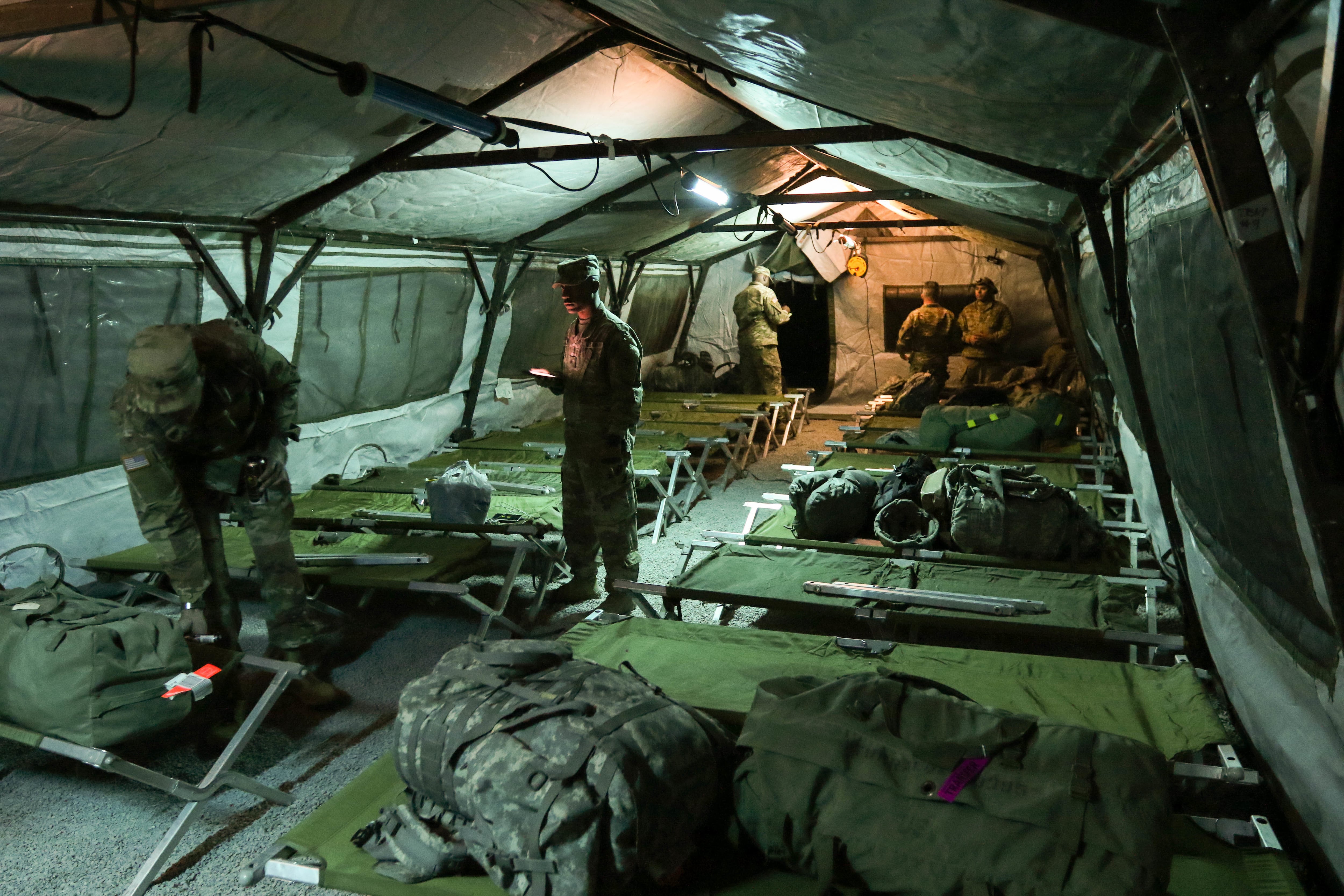Eleven soldiers hospitalized at Fort Bliss, Texas, believed they were drinking alcohol on the last day of a 10-day field exercise, but instead ingested antifreeze, according to toxicology tests and an initial inquiry breifed to reporters Friday.
The troops were admitted to a hospital Thursday morning — two in critical condition — after they exhibited symptoms consistent with the consumption of ethylene glycol, better known as antifreeze.
The soldiers, all of whom were assigned to the 11th Air Defense Artillery Brigade, are still being treated at the William Beaumont Army Medical Center on Fort Bliss. Two remain seriously ill and have been admitted to the intensive care unit, but their conditions have improved since earlier Friday.
All soldiers have “shown signs of significant improvement,” said Col. Shawna Scully, deputy commander for medical services at William Beaumont Army Medical Center. “Four soldiers will be released later this afternoon to their families. ... For the rest of the patients, it will depend on their progress.”
How they got the substance is under investigation, according to Lt. Col. Allie Payne, a spokeswoman for 1st Armored Division. It is also against Army regulations to drink alcohol during field training, she added. It’s unclear whether others in the unit also drank the substance.
The troops were brought to the hospital between 7 a.m. and 1 p.m. Thursday. When exactly the alcohol consumption occurred was not immediately clear.
“One patient arrived in the emergency room with initial symptoms,” Scully said. “Shortly after that was followed by a second. At that point, military medical leadership requested that all members of the unit be brought in for support and assessments.”
Antifreeze poisoning can damage the kidneys and lead to organ failure. Ingestion of the substance is treated with medications that help filter it out of a patient’s system. In extreme cases, that filtering is done through dialysis.
One soldier required an intubation, Scully said, meaning a tube was inserted down their throat to help them breathe. It has since been removed.
It’s unclear how much antifreeze was consumed by each soldier, a group that included one warrant officer, two noncommissioned officers and eight enlisted soldiers.
The troops had been at McGregor Range near Fort Bliss for a routine readiness exercise.
Air defense units, like the brigade these soldiers belonged to, are among the most frequently deployed in the Army. The 11th Air Defense Artillery Brigade operates Patriot system batteries that intercept enemy missiles.
The circumstances surrounding the incident remain under investigation by Army CID special agents and a separate administrative investigation launched by Fort Bliss senior mission commander Maj. Gen. Sean C. Bernabe, according to Payne, the spokeswoman.
Kyle Rempfer was an editor and reporter who has covered combat operations, criminal cases, foreign military assistance and training accidents. Before entering journalism, Kyle served in U.S. Air Force Special Tactics and deployed in 2014 to Paktika Province, Afghanistan, and Baghdad, Iraq.




